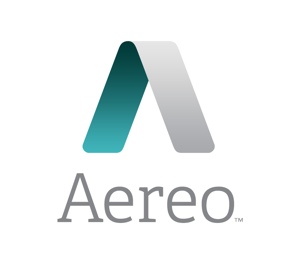 Back to selection
Back to selection
MEDIA CURRENT: AEREO AND THE NEW ONLINE TV WARS
 A coalition of broadcasters including WNET, FOX, WPIX and Univision filed a preemptive injunction in Manhattan’s federal district court earlier this month to halt the launch of Aereo, a $12-a-month online subscription service scheduled to go live on March 14th.
A coalition of broadcasters including WNET, FOX, WPIX and Univision filed a preemptive injunction in Manhattan’s federal district court earlier this month to halt the launch of Aereo, a $12-a-month online subscription service scheduled to go live on March 14th.
Aereo proposes to use an array of tiny TV antennas to capture over-the-air broadcast channels and then retransmit these signals via online streaming to web-enabled devices, be it a computer, smartphone or tablet.
The broadcasters argue that Aereo’s action will violate their protections under the Copyright Act. “Aereo has not licensed this television programming from those who own it. Nor has it sought or received consent from the television signal owners,” the broadcasters argue. “Thus, for $12 a month, Aereo will provide unlimited streams of Plaintiffs’ television broadcasts over the Internet in direct competition with Plaintiffs.”
Aereo is a New York City-based startup that raised $20 million from Barry Diller’s IAC and other backers. “Aereo does not believe that the broadcasters’ position has any merit and it very much looks forward to a full and fair airing of the issues,” Mike Schroeder, a company spokesman, wrote in an e-mailed statement. “Consumers are legally entitled to access broadcast television via an antenna and they are entitled to record television content for their personal use.”
Two important Supreme Court actions may come into play in this round of the online TV wars. In 2008, a coalition of movie studios, broadcasters and cable television producers challenged the legality of Cablevision’s digital video recorder (DVR) service that enabled subscribers to skip commercials. New York’s 2nd Circuit Court of Appeals ruled in favor of Cablevision and, the following year, the Supreme Court refused to take up the case, thus affirming the lower-court’s decision.
Three decades earlier, many of the same broadcasters now going against Aereo were in a comparable battle with the then-dominant Hollywood studios. In 1984, the Supreme Court ruled against Universal Pictures (and, thus, Hollywood) in the now-legendary Sony “Betamax” case.
Aereo recognizes the significance of its challenge to the traditional television business model, one based on analog technologies. In this model, the broadcasters seek to protect their control over limited channels. However, as envisioned by Aereo, there are no more channels; online digital technology reconceives the “channel” as a “portal” open to each individual user. It guarantees: “Consumers are legally entitled to access broadcast television via an antenna and they are entitled to record television content for their personal use.”
Whether the broadcasters’ suits against Aereo succeed or not, their efforts represent a push-point in the formation of a new, 21st century media culture. In 1984, the year of the Sony decision, Stewart Brand, founder of the legendary Whole Earth Catalog, foretold: “On the one hand information wants to be expensive, because it’s so valuable. The right information in the right place just changes your life. On the other hand, information wants to be free, because the cost of getting it out is getting lower and lower all the time. So you have these two fighting against each other.”
It has never been truer then today. How far have we come in the last three decades?
* * *
David Rosen is a writer and business-development consultant. He is author of the indie classic, Off-Hollywood: The Making & Marketing of Independent Films (Grove), originally commissioned by the Sundance Institute and the Independent Feature Project. He can be reached at drosennyc@verizon.net. For more information, check out www.DavidRosenWrites.com and www.DavidRosenConsultants.com.
